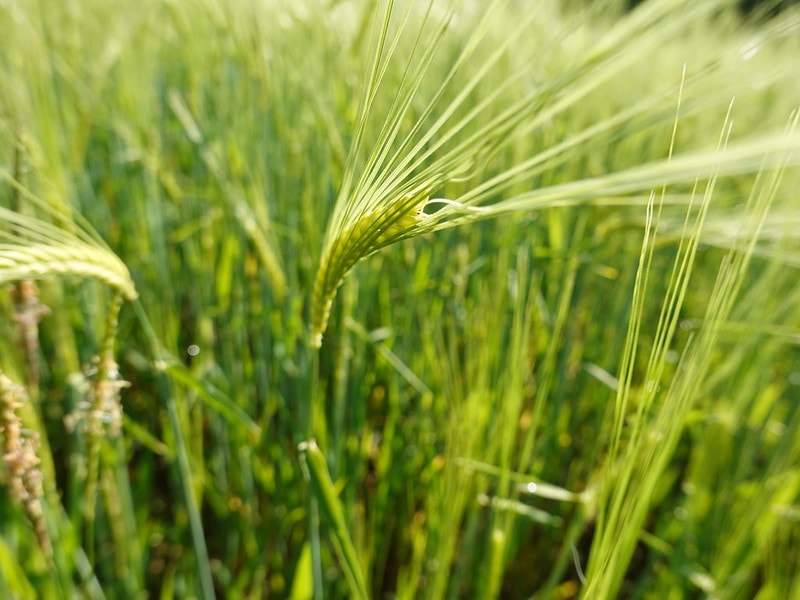|
When the Israelites had traveled through the wilderness and were preparing to enter the Promised Land, God gave them reminders of their journey, instructions on how to live their lives, and promises for the future. The book of Deuteronomy is filled with these. We can read what God told them about the Promised Land in Deuteronomy 11:10-12. "The land you are entering to take over is not like the land of Egypt, from which you have come, where you planted your seed and irrigated it by foot as in a vegetable garden. But the land you are crossing the Jordan to take possession of is a land of mountains and valleys that drinks rain from heaven. It is a land the Lord your God cares for; the eyes of the Lord your God are continually on it from the beginning of the year to its end."
Throughout the time that they were moving toward Mt. Sinai God was drawing His people to Himself by revealing who He is and what He had in store for them. He told them, "Now, if you obey me fully and keep my covenant, then out of all nations you will be my treasured possession. Although the whole earth is mine, you will be for me a kingdom of priests and a holy nation." (Exodus 19:5-6) He wanted a people who were set apart and formed in His identity. One of the concepts that was introduced to the Israelites was that of firstfruits. It required them to be dedicated to celebrating it at the beginning of the grain harvests and was an act of worship. They needed to go into their fields to select the first and best stalk of grain to present to the priests as an offering to the Lord. The firstfruits offerings were brought to the priests during the three primary feasts and at the beginning of each new month. The principle is that the first of everything belongs to the Lord—crops, livestock, and children. By giving the first part of their blessing to God, they were dedicating and sanctifying the rest. The Israelites learned much as they spent 50 days traveling to Mt. Sinai where God would give them the law and a new identity as a people. On the Jewish calendar they moved during the end of the month of Nisan and the entire month of Iyar. The second month, Iyar, became a time of transition for them as they were led into a new level of relationship with the Lord. He introduced them to His nature. First, God showed them that He is Jehovah Rapha, the God who Heals. Then He introduced them to His names Jehovah Jaira, the God who Provides, and Jehovah Nissi, the Lord, my Banner of Victory. As they moved from Passover redemption to the place of praise and giving the Lord a firstfruits offering, they learned about keeping covenant. God was indeed faithful to His children and eventually demonstrated to them that He was willing to give everything in an act of sacrifice that reverberates through the ages. God gave His Son, Jesus, as an offering of redemption. He was crucified, but resurrected, and became a firstfruits offering Himself. First Corinthians 15:20 says, "But Christ has indeed been raised from the dead, the firstfruits of those who have fallen asleep." It is no coincidence that Jesus, our Passover Lamb, was resurrected on the day of firstfruits, when the children of Israel would have been presenting their Passover barley sheaf to the priests who lifted it up before God as an offering to Him. How does this relate to us today? God has given us His very best in the sacrifice of His Son. Just as the children of Israel brought their first and best to God, we can use this time up until Pentecost to present a daily offering to the Lord. A way for counting God's goodness was introduced to the Israelites. We can read about it in Leviticus 23:15-16. From the first day of a firstfruits offering, they were to count 50 days and then present God with another firstfruits offering during Shavuot, called Pentecost by the Church. Today this is called counting the Omer. As they counted, it was important for God’s people to remember the goodness of God. Like the children of Israel, let's be dedicated to giving the Lord a daily thanksgiving for His goodness and love between now and Pentecost. |
Joan E. MathiasCategories
All
Archives
July 2024
|

 RSS Feed
RSS Feed